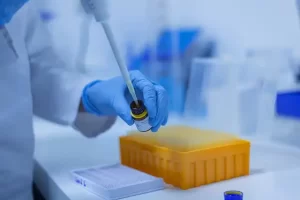New Discovery in Stem Cell Research Offers Hope for Reversing Osteoarthritis
- Early Biomarker for Multiple Sclerosis Development Identified Years in Advance
- Aspirin Found Ineffective in Improving Recurrence Risk or Survival Rate of Breast Cancer Patients
- Child Products from Aliexpess and Temu Contain Carcinogens 3026x Over Limit
- Daiichi Sankyo/AstraZeneca’s Enhertu Shows Positive Results in Phase III DESTINY-Breast06 Clinical Trial
- Mn007 Molecules Offer Potential for Combating Streptococcus pyogenes Infection
- Popular Indian Spices Banned in Hong Kong Over Carcinogen Concerns
New Discovery in Stem Cell Research Offers Hope for Reversing Osteoarthritis
- AstraZeneca Admits for the First Time that its COVID Vaccine Has Blood Clot Side Effects
- Was COVID virus leaked from the Chinese WIV lab?
- HIV Cure Research: New Study Links Viral DNA Levels to Spontaneous Control
- FDA has mandated a top-level black box warning for all marketed CAR-T therapies
- Can people with high blood pressure eat peanuts?
- What is the difference between dopamine and dobutamine?
- How long can the patient live after heart stent surgery?
New Discovery in Stem Cell Research Offers Hope for Reversing Osteoarthritis
Researchers have found that osteoarthritis in mice is caused by the depletion of specialized genes that express cartilage-forming stem cells, and they have identified a method to reverse this condition.
This discovery opens the door to treating this painful condition, not just controlling its symptoms.
Osteoarthritis (OA) affects all joint tissues, leading to the loss of joint cartilage, which plays a crucial role in providing a smooth, lubricated surface that allows bones to move smoothly against each other.
For this long-term, progressive condition, there are currently no treatment options. The symptoms of joint pain and stiffness can only be alleviated with pain relievers and non-steroidal anti-inflammatory drugs (NSAIDs), which, in the long run, can actually accelerate the worsening of osteoarthritis symptoms. However, in a new study, researchers from the University of Adelaide in South Australia found that OA may not only be treatable but also reversible.
The lead author of this study, Jia Ng, stated, “Our research results redefine osteoarthritis as not a ‘wear and tear’ condition but as an active and potentially reversible loss of key joint cartilage stem cells.”
Joint cartilage is a permanent tissue that requires support from progenitor cells – descendants of stem cells – to replenish the chondrocytes responsible for forming cartilage. However, the regenerative capacity of joint cartilage is limited, and damage, chronic mechanical stress, or aging, often referred to as “wear and tear,” typically lead to OA.
The researchers studied the knee joints of adult mice and discovered a specific group of cartilage progenitor cells on the joint surface capable of generating joint cartilage.
These cells, marked by the Gremlin 1 gene, were depleted in OA. Through experiments, they demonstrated that the loss of Gremlin-1-expressing cartilage progenitor cells is an early event in OA and can also lead to OA.

To identify molecular targets for treating OA in Gremlin-1 cells, the researchers focused on fibroblast growth factor signaling, as this pathway plays a role in regulating cartilage development or chondrogenesis. Treating mice with fibroblast growth factor 18 (FGF18) stimulated the proliferation of Gremlin 1 cells in joint cartilage, resulting in a significant restoration of cartilage thickness and a reduction in OA.
“With this new information, we can now explore drug options that directly target the stem cell population, which is the culprit behind joint cartilage development and osteoarthritis progression,” Ng said. “Our research suggests that there may be new ways to treat the disease rather than just the symptoms, improving the health and quality of life for osteoarthritis patients.”
This discovery also provides opportunities for cartilage regeneration in other forms of injury and disease.
Whether these findings can be translated from mice to human subjects remains to be seen, but the five-year clinical trial results of using FGF18 (clinically known as Sprifermin) to treat knee joint OA were published in 2021. While Sprifermin did not alleviate OA symptoms, the research found it to be safe and potentially improve cartilage thickness and volume. Phase III trials are currently underway.
The study was published in the journal “Nature Communications.”
New Discovery in Stem Cell Research Offers Hope for Reversing Osteoarthritis
(sourceinternet, reference only)
Disclaimer of medicaltrend.org
Important Note: The information provided is for informational purposes only and should not be considered as medical advice.



